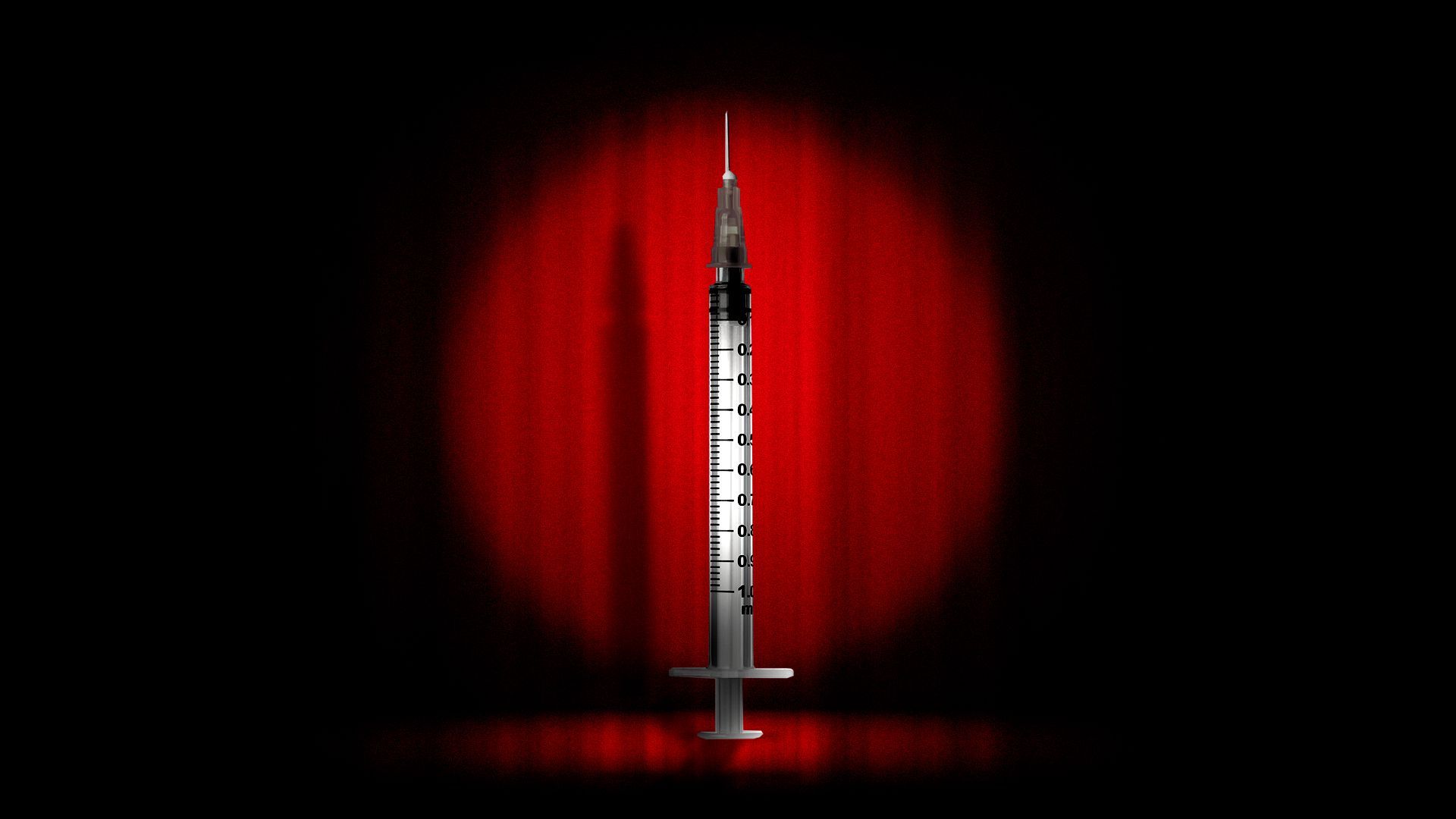Oct 17, 2020 - Economy
The industries that won’t recover without a vaccine
Add Axios as your preferred source to
see more of our stories on Google.

Illustration: Annelise Capossela/Axios
Industries that were once expected to recover after the initial coronavirus lockdowns lifted are now unlikely to bounce back until a vaccine arrives.
Why it matters: In the absence of a widely-adopted vaccine, businesses in the entertainment, travel, restaurant and other industries are struggling to overcome consumer skepticism around indoor activities — even with new safety protocols in place.
The big picture: CEOs of battered companies caution that business prospects hinge on a vaccine.
- And with the exception of the health care industry, the industrial sector — which includes airlines, commercial services and suppliers and manufacturing — has made the most references to a vaccine in its earnings calls over the past seven months, according to data provided to Axios by research firm Sentieo.
Entertainment
- The movie industry hoped big hits like "Tenet" would lure people back to theaters when they began to reopen this summer. But a poor showing for "Tenet" forced Warner Bros. and other studios to delay big hits until 2021 and 2022.
- Meanwhile, big exhibitors like Regal are closing hundreds of theaters. AMC warned investors this week that its cash will be "largely depleted" as soon as the end of this year.
- Concert and live event venues have experienced hundreds of nationwide closures and are currently begging Congress for more relief packages.
- Broadway extended its shutdown until June 2021 last week.
Travel and tourism
- Tourism-reliant industries, including hotels, weren’t expected to recover quickly. But a recent announcement by Disney that it was laying off 28,000 people due to pandemic-related headwinds suggests that the sector is in crisis.
- Cruise lines last week extended their suspensions in response to updated guidelines from the Centers for Disease Control and Prevention. Most of the major cruise lines have shut down operations until 2021.
- Airlines are furloughing thousands of employees as federal aid that propped up the industry during the pandemic expires. Airlines are pushing to test before takeoff to spark confidence in travel, as Axios' Joann Mueller reports.
- Local transit systems are struggling as they try to coax wary riders back on to subways and buses.
Food and beverage
- While restaurants have successfully lured back customers, they are abiding by state and city guidelines for capacity caps — like other consumer-facing small businesses.
- Bars have experienced thousands of closures across the country as research continues to show that bars are one of the fastest-spreaders of COVID-19.
Enterprise
- Remote work has made industries that rely on enterprise businesses nearly obsolete, trickling all the way down to professional shopping services like Rent the Runway, which are racing to adapt to more people who don't need to get dressed up.
- Garment services have been devastated by the pandemic, Axios' Felix Salmon reports. He notes that in the U.S., "many garment workers are undocumented, which rendered them ineligible for CARES Act stimulus and unemployment checks."
Recreation
- Gyms and boutique fitness classes have begun to reopen with restrictions across the country, but many have been forced to permanently shutter due to the coronavirus.
- Amusement parks will be forced to remain shut in California, Gov. Gavin Newsom declared last week.
- Temporary museum closures are becoming permanent. Sixteen percent of America’s museum directors said there’s a “high risk” they may have to close in the next year without additional funding, according to a survey by the American Alliance of Museums conducted in July.
- And in what can only be considered dismal irony, the Smithsonian Magazine reported that COVID-19 may permanently shutter a museum dedicated to vaccine pioneer Edward Jenner.
The bottom line: Even a vaccine won't be enough on its own. Struggling industries may not recover until the virus is completely under control.
- And for industries that were struggling even before the pandemic hit, a vaccine will not be able to reverse the terminal decline that's been exacerbated by the pandemic.

